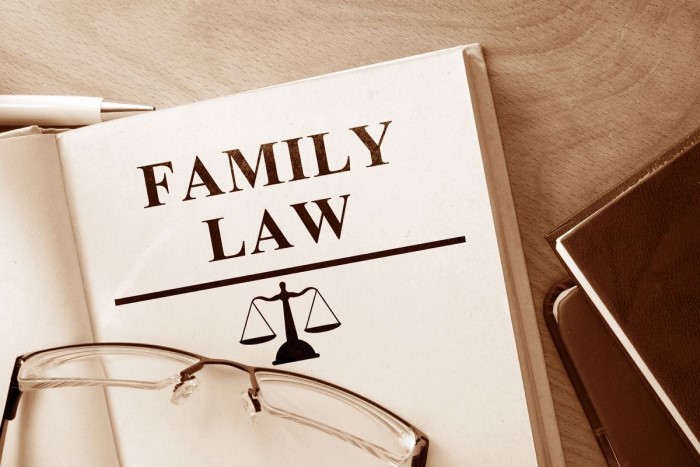Are you interested in pursuing a career in family law? Or do you want to enhance your knowledge of family law? Enrolling in a course on family law can provide you with a strong foundation of knowledge and skills to succeed in this field. In this article, we will guide you through everything you need to know about courses in family law.
What is Family Law?
Before we dive into the details of family law courses, it’s essential to understand what family law is. Family law is a branch of law that deals with legal issues related to families and domestic relations. These issues include marriage, divorce, child custody, adoption, domestic violence, and child support.
Why Enroll in a Course on Family Law?
Family law is a complex and constantly evolving field. A course on family law can provide you with a thorough understanding of the legal system and the skills needed to represent clients effectively. Here are some reasons why you should consider enrolling in a course on family law:
Stay Updated with the Latest Developments in Family Law
Family law is constantly evolving, with new legislation and case law emerging constantly. A course on family law can help you stay up to date with the latest developments in the field, including changes in legislation, legal precedents, and emerging trends.
Develop a Strong Foundation of Knowledge in Family Law
A course on family law can provide you with a comprehensive understanding of the legal principles and rules that govern family law. You will learn about the different areas of family law, including marriage, divorce, child custody, and adoption, and the legal issues in each area.
Acquire Essential Skills for Family Law Practice
A course on family law can equip you with the essential skills you need to succeed in family law practice. These skills include legal research, drafting legal documents, negotiation, mediation, and trial advocacy.
Types of Courses in Family Law
Several types of courses are available in family law, ranging from introductory courses to advanced courses designed for experienced practitioners. Here are some of the most common types of courses in family law:
Introductory Courses
Introductory courses in family law provide an overview of the legal principles and rules that govern family law. These courses are suitable for students who are new to the field or want to gain a basic understanding of family law.
Advanced Courses
Advanced courses in family law are designed for experienced practitioners who want to deepen their knowledge and skills in a specific area of family law. These courses cover advanced topics such as complex property division, high-conflict custody disputes, and international child abduction.
Continuing Legal Education (CLE) Courses
CLE courses in family law are designed for practicing attorneys who want to stay up to date with the latest developments in the field. State bar associations often require these courses to maintain a license to practice law.
Online Courses
Online courses in family law are becoming increasingly popular as they offer flexibility and convenience for students who cannot attend traditional classroom-based courses. These courses cover the same material as traditional courses but are delivered online, often through video lectures and interactive exercises.
Choosing the Right Course in Family Law
Choosing the right course in family law is crucial to your success in this field. Here are some factors to consider when selecting a course:
Course Content
The course content should comprehensively cover the legal principles and rules governing family law. It should also include practical skills training, such as legal research and drafting legal documents.
Instructor Experience
The instructor should be an experienced family law attorney or judge who can provide real-world insights into family law practice. Look for instructors with a proven track record of success and positive student reviews.
Course Format
Consider the course format and whether it fits your learning style and schedule. Traditional classroom-based courses may be more suitable for students who prefer in-person instruction. In contrast, online courses offer flexibility and convenience for those who cannot attend in-person classes.
Cost
The cost of the course is another important factor to consider. Compare the fees of different courses and ensure that the course you choose fits within your budget.
Conclusion
Enrolling in a course on family law can provide you with a strong foundation of knowledge and skills to succeed in this complex and constantly evolving field. Whether you are a student or an experienced practitioner, there is a course out there that can meet your needs. Consider the factors we discussed when choosing a course and take the first step towards a successful career in family law.
FAQs
What is family law?
Family law deals with legal issues related to families and domestic relations, including marriage, divorce, child custody, adoption, domestic violence, and child support.
Why should I enroll in a course on family law?
Enrolling in a course on family law can provide you with a thorough understanding of the legal system and the skills needed to represent clients effectively. It can also help you stay up to date with the latest developments in the field.
What types of courses are available in family law?
Several types of courses are available in family law, including introductory courses, advanced courses, continuing legal education courses, and online courses.
How do I choose the right course in family law?
Consider the course content, instructor experience, course format, and cost when choosing a course in family law.
What skills can I expect to acquire from a course in family law?
You can expect to acquire essential skills for family law practice, including legal research, drafting legal documents, negotiation, mediation, and trial advocacy.

